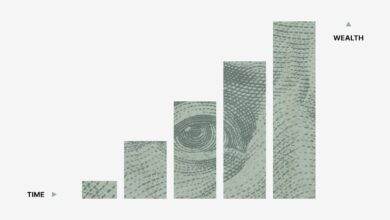In contemporary society, the ethical implications of wealth have fueled a longstanding debate. Many argue that wealth accumulation is inherently evil, while others contend otherwise. This article critically examines the question, “Is being rich evil?” by delving into various perspectives on the topic, addressing concerns around rewards for hard work and the perceived association with greed and exploitation.
Defining Riches and Evil
To establish the morality of being rich, it is crucial to define what it means to be rich and what constitutes evil.
Defining Riches
Being rich refers to an individual’s possession of substantial wealth or financial resources. The term rich varies from one person to another, and it can be influenced by factors such as lifestyle, needs, and values.
Defining Evil
Evil is an action, behavior, or intent that causes harm, destruction, or suffering to others or oneself. It is an ethical concept that varies from one culture to another, and it can be influenced by social, religious, and political factors.
Wealth Accumulation
To determine whether being rich is evil, it is essential to analyze how individuals accumulate wealth.
Legitimate Ways of Accumulating Wealth
Individuals can accumulate wealth through legitimate means such as education, entrepreneurship, hard work, and investments. These methods do not harm others and are not considered evil.
Illegitimate Ways of Accumulating Wealth
On the other hand, individuals can also accumulate wealth through illegitimate means such as fraud, corruption, exploitation, and illegal activities. These methods harm others and are considered evil.
The Morality of Being Rich
The morality of being rich is a subjective issue that is influenced by cultural, religious, and personal factors.
Arguments Against Being Rich
Some individuals argue that being rich is evil because it perpetuates inequality, reinforces classism, and promotes greed. They argue that wealth accumulation is a product of exploiting others and perpetuating the cycle of poverty.
Arguments For Being Rich
Others argue that being rich is not evil because it rewards hard work, innovation, and creativity. They argue that wealth accumulation is a product of individual’s efforts to improve their lives and the lives of others.
As a matter of fact, being rich is not evil. Money can be used for good or evil, depending on how it is used. Being rich does not automatically make one evil or immoral. The Bible does not condemn wealth accumulation but rather the love of money, which is the root of all evil (1 Timothy 6:10).

The Impact of Being Rich
The impact of being rich on society and individuals is another critical aspect to consider when analyzing the morality of wealth.
Positive Impact
Being rich can have a positive impact on society and individuals by promoting economic growth, creating job opportunities, and improving living standards. It can also enable individuals to contribute to charitable causes, support education, and advance research.
Negative Impact
Being rich can also have a negative impact on society and individuals by perpetuating inequality, creating social divisions, and promoting materialism. It can also lead to the concentration of power and influence in the hands of a few individuals, leading to corruption and abuse of power.
Wealth and Christian Faith
The Christian faith does not condemn wealth but rather encourages its proper use. The Bible teaches that wealth is a gift from God and should be used to bless others and advance God’s kingdom on earth.
Bible Verses on Wealth
Some of the Bible verses that emphasize the proper use of wealth include:
- “Command those who are rich in this present world not to be arrogant nor to put their hope in wealth, which is so uncertain, but to put their hope in God, who richly provides us with everything for our enjoyment. Command them to do good, to be rich in good deeds, and to be generous and willing to share” (1 Timothy 6:17–18).
- “Do not store up for yourselves treasures on earth, where moth and rust destroy, and where thieves break in and steal. But store up for yourselves treasures in heaven, where moth and rust do not destroy, and where thieves do not break in and steal” (Matthew 6:19–20).
- “It is easier for a camel to go through the eye of a needle than for a rich man to enter the kingdom of God” (Mark 10:25).
- “For what will it profit a man if he gains the whole world and forfeits his soul? Or what shall a man give in return for his soul?” (Matthew 16:26).
These Bible verses highlight the importance of not putting our hope in wealth and storing up treasures in heaven instead of on earth. They also emphasize the need for generosity, good deeds, and the proper use of wealth.
In case you’re wondering how you store up your wealth in heaven, Jesus teaches in Matthew 6:20, “But store up for yourselves treasures in heaven, where moths and vermin do not destroy, and where thieves do not break in and steal.” This suggests that investing in acts of kindness, helping those in need, and spreading love are ways to accumulate heavenly treasures. By focusing on eternal values rather than material possessions, we can find true fulfillment and secure our future beyond this earthly life.
Conclusion
In conclusion, being rich is not evil in itself, but the means through which one accumulates wealth and how one uses it can determine its morality. Wealth accumulation through legitimate means such as hard work and investments are not evil, but illegitimate means such as exploitation, fraud, and corruption are. The Christian faith does not condemn wealth but rather emphasizes its proper use and the need for generosity and good deeds.
Ultimately, being rich is a personal choice, and individuals must use their wealth wisely and for the benefit of society and others. Wealth can be a blessing or a curse, depending on how it is used.
FAQs
- Is it wrong to desire wealth?
No, it is not wrong to desire wealth. However, the means through which one accumulates wealth and how one uses it can determine its morality. - Can being rich make one immoral?
No, being rich does not automatically make one immoral. However, the misuse of wealth can lead to immoral behavior. - What does the Bible say about wealth?
The Bible does not condemn wealth but rather emphasizes its proper use and the need for generosity and good deeds. - Is it a sin to be wealthy?
No, it is not a sin to be wealthy. However, the love of money, which is the root of all evil, is condemned in the Bible. - How can one use their wealth for good?
One can use their wealth for good by supporting charitable causes, advancing research, contributing to education, and promoting social justice.




